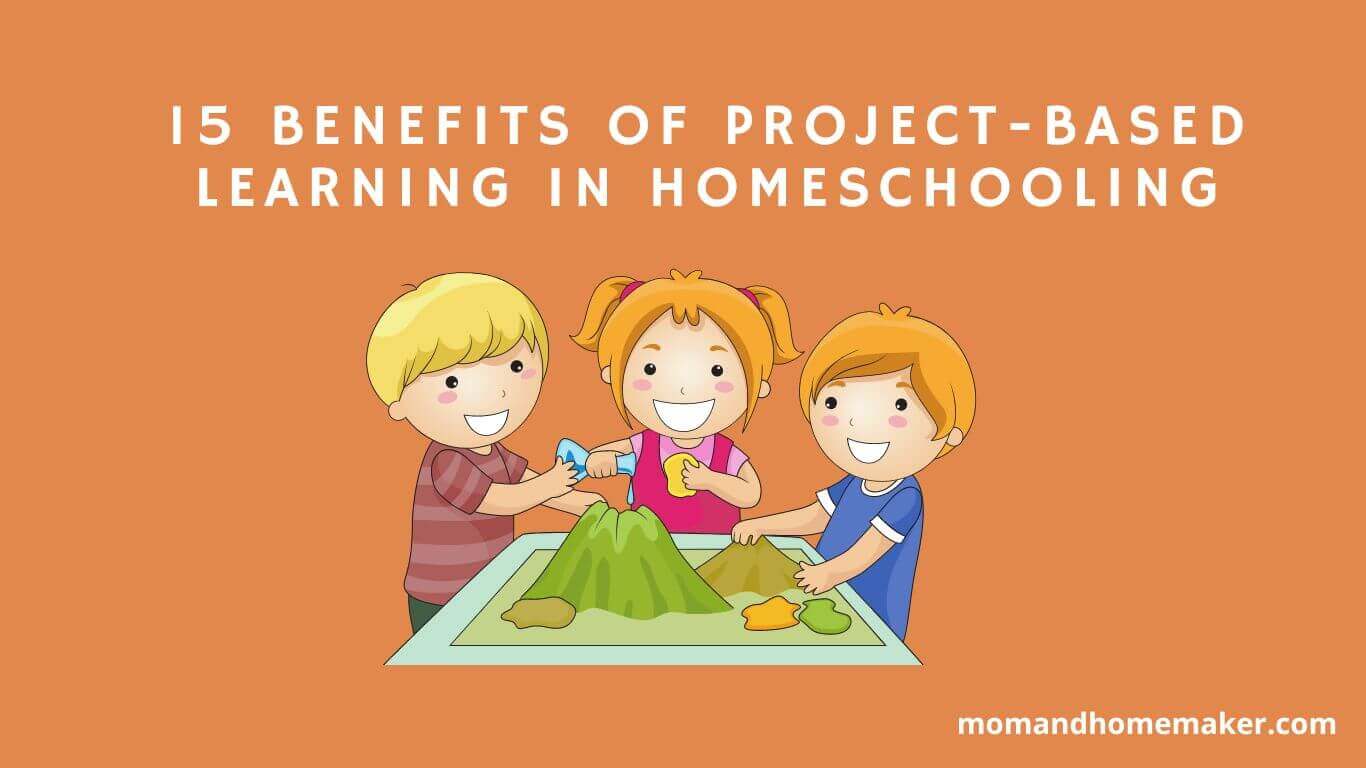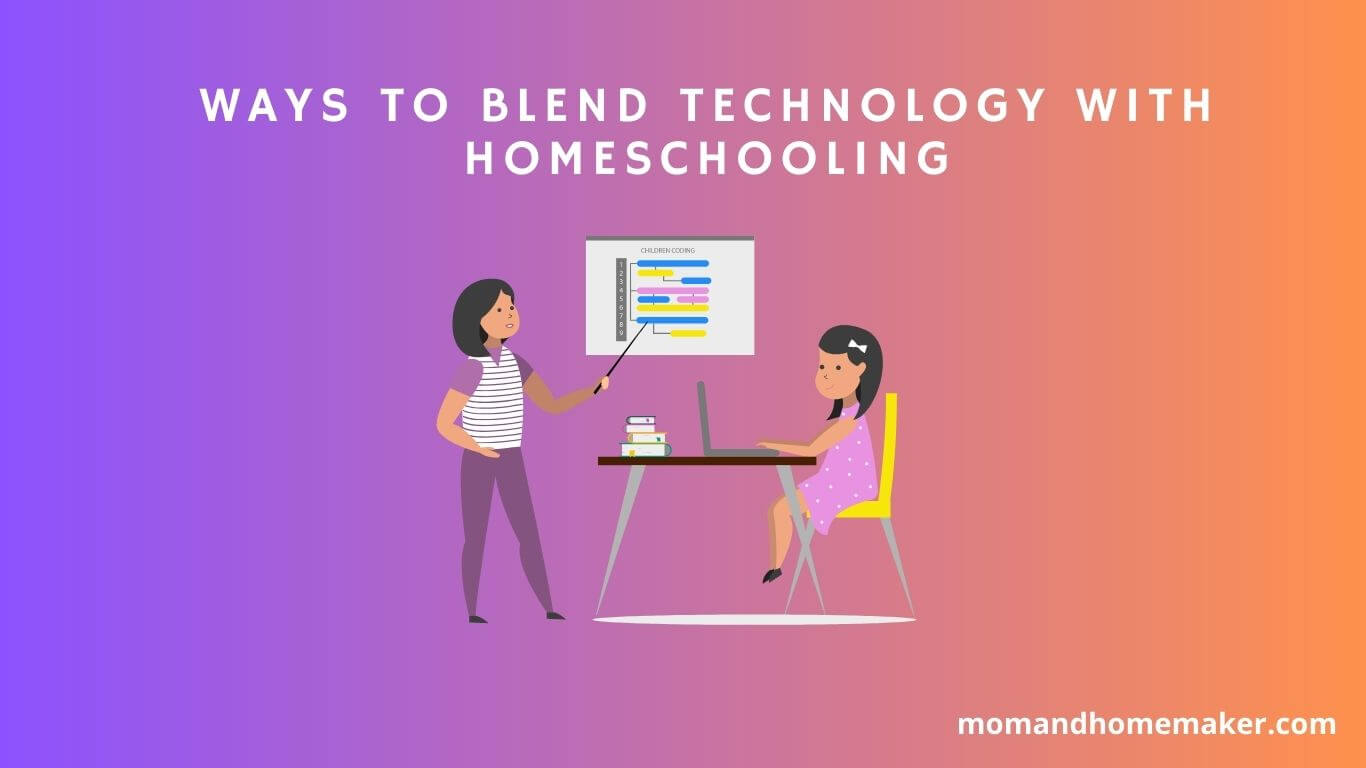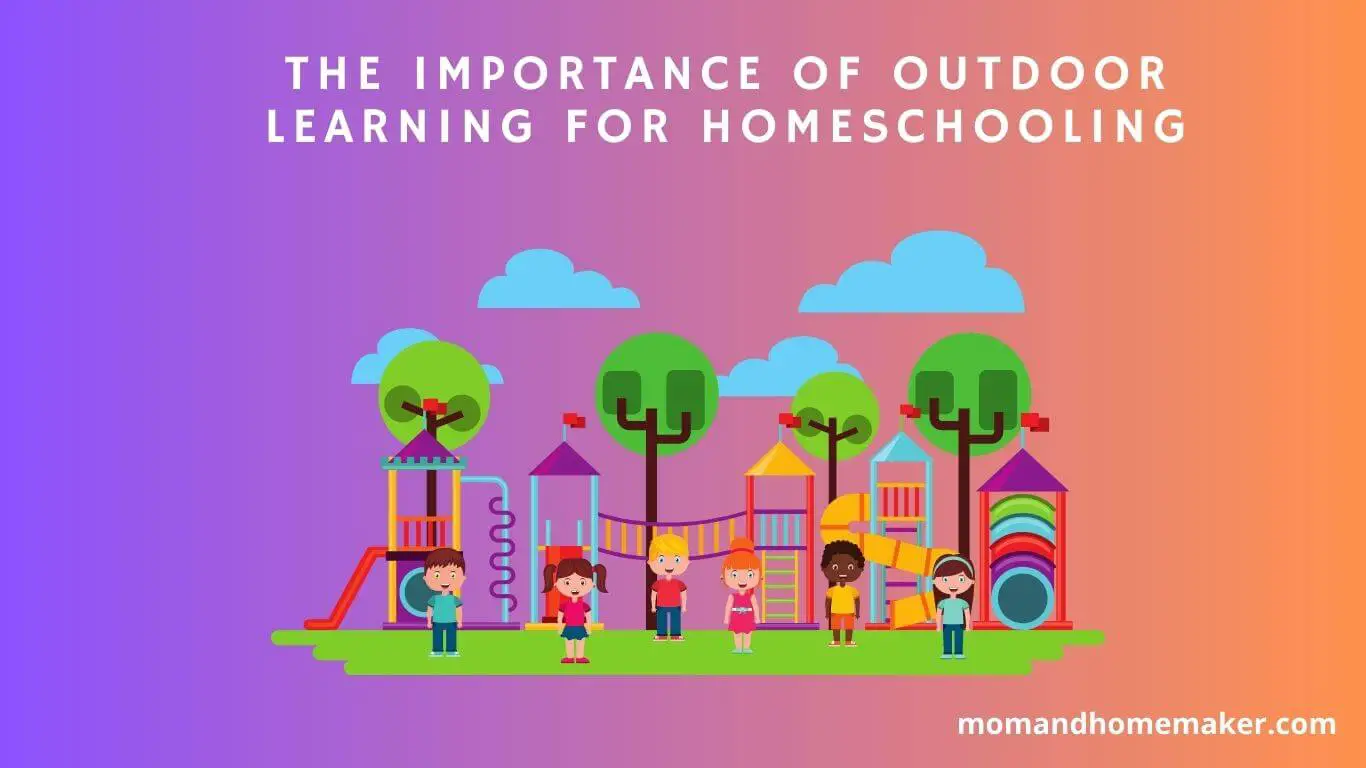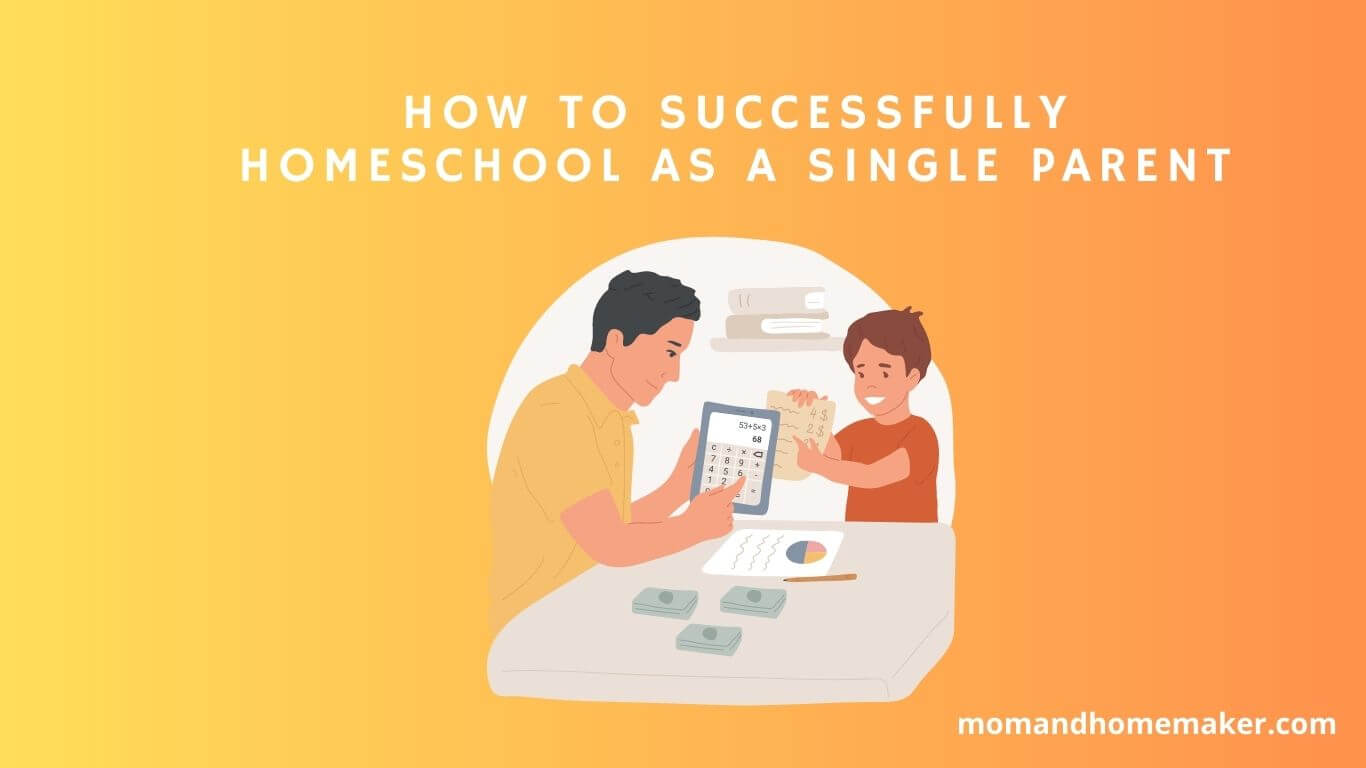As a homeschooling parent, you are likely always on the lookout for ways to make learning more engaging and effective for your child. One approach that has gained popularity in recent years is project-based learning (PBL), which involves students working on extended projects that require them to apply skills and knowledge across multiple subject areas.
Project-based learning is all about giving students the opportunity to learn by doing. Rather than simply memorizing facts and figures, they engage in hands-on activities that challenge them to think deeply and creatively about real-world issues.
In this article, we’ll explore 15 specific benefits of project-based learning in the context of homeschooling, so you can assess whether this approach might be right for your family.
Table of Contents
1. Increased Engagement
One such benefit is increased engagement. Unlike traditional classroom settings, where students may become bored or disinterested in the material, project-based learning provides a more hands-on and interactive approach that encourages students to not only develop a deeper understanding of the subject matter but also gain valuable critical thinking skills that will serve them well throughout their lives.
However, with increased engagement comes its own set of challenges. Students may become so engrossed in their projects that they lose sight of other important aspects of their education, such as reading comprehension or math skills.
It is important for parents and educators to strike a balance between allowing students the freedom to explore their interests through project-based learning while also ensuring they receive a well-rounded education. Despite these challenges, the benefits of increased engagement through project-based learning are invaluable.
2. Improved Critical Thinking Skills
As mentioned earlier, project-based learning in homeschooling increases engagement among students. This heightened level of interest and attention can then lead to improved critical thinking skills. Through group discussions, students are able to bounce ideas off each other and learn how to effectively communicate their thoughts and opinions.
Furthermore, case studies provide a real-world context for students to apply their knowledge and critical thinking skills. They are presented with a problem or scenario and must work together to develop a solution or strategy. This process not only enhances their critical thinking abilities but also teaches them how to collaborate with others in order to achieve a common goal.
The application of these skills across multiple subjects is another benefit of project-based learning in homeschooling. When working on a project, students are often required to draw upon knowledge from various disciplines such as science, math, and language arts.
This interdisciplinary approach helps them make connections between different subjects and see how they all relate to one another. As a result, they develop a more well-rounded understanding of the world around them.
3. Application Of Skills Across Multiple Subjects
Like a painter using different colors to create a masterpiece, subject integration, and cross-curricular application are essential in project-based learning. Homeschoolers can benefit from this approach as it allows them to apply skills learned in one subject area to another. This method is like putting together pieces of a puzzle to form a bigger picture.
When students engage in project-based learning, they learn practical skills that have real-world relevance. They begin to understand how the concepts they learn in class can be used in their everyday lives. For example, if they are building a solar-powered car for their science project, they may need to use math skills to calculate the amount of energy needed and engineering skills to design the car structure.
Project-based learning provides homeschoolers with an opportunity to develop practical skills while applying knowledge across multiple subjects. By working on projects that solve real-world problems, students gain confidence and become more engaged learners.
4. Real-World Problem Solving
Real-world applications are an important aspect of project-based learning. By engaging in practical problem-solving, students are able to apply their knowledge and skills to real-life situations. This hands-on learning approach allows for experiential education that goes beyond traditional textbook learning.
One example of this is a homeschooling project where students design and build a sustainable garden. Through this project, they learn about environmental sustainability, plant biology, and budgeting. They also have the opportunity to apply their math and science skills in a real-world context. This type of project-based learning encourages critical thinking and problem-solving skills that will serve students well beyond their homeschooling years.
Furthermore, they begin to understand how they can use their knowledge and skills to make a difference in the world around them. Project-based learning fosters a desire to serve others, which is an important value for any individual to possess. Project based Learnig allows:
- Real-world applications allow for practical problem-solving.
- Students can apply knowledge and skills in real-life situations.
- Experiential education goes beyond traditional textbook learning.
- Projects with tangible impact foster empathy for others.
- Students develop a sense of purpose.
- The desire to serve others is enhanced.
As students engage in project-based learning, they are encouraged to think creatively and explore new possibilities. The hands-on nature of this approach allows them to experiment with different solutions and take risks without fear of failure. This encourages creativity as they learn that there are often multiple ways to approach a problem or challenge.
5. Encourages Creativity
Project-based learning doesn’t just teach practical skills; it also encourages creative exploration and artistic expression. Through project-based learning, students are given the opportunity to explore their creativity and express themselves through various mediums. Whether it’s creating a piece of artwork or designing an innovative solution to a problem, project-based learning fosters a sense of creativity that traditional classroom settings simply cannot replicate. This kind of exploration helps students develop not only their technical skills but also their ability to think outside the box.
Artistic expression is another critical component of project-based learning. By allowing students to express themselves through art, they’re able to tap into different parts of their brains and learn more about themselves in the process. Moreover, creating something from scratch can be incredibly rewarding and boost self-esteem. In this way, project-based learning isn’t just about acquiring new information; it’s also about personal growth.
Project-based learning in homeschooling goes beyond just individual growth; it fosters collaboration among learners. In the next section, we’ll look at how working together with others can help learners develop key social skills that will serve them well throughout their lives.
6. Fosters Collaboration
Collaboration is an essential skill that every child should learn. Homeschooling through project-based learning provides the perfect opportunity for children to hone their collaboration techniques while working on a group project. It allows them to develop valuable skills needed in both academic and personal life.
Group dynamics play a crucial role in homeschooling through project-based learning. Children work together with their peers, bringing different ideas and perspectives to the table. They learn how to communicate, collaborate and negotiate with one another while respecting each other’s opinions.
Through homeschooling, parents can guide their children on how to work collaboratively with others by providing opportunities for teamwork. These opportunities help children understand the value of teamwork and how it is an essential ingredient for success in life.
- Working with others helps children develop empathy, which is an essential ingredient in serving others.
- Collaboration teaches children how to appreciate diversity and understand that everyone has unique skills and talents.
- Group projects allow children to develop leadership skills as they take turns leading the team toward its goal.
As children learn how to work collaboratively, they also learn how to become self-directed learners. This is because they are given the freedom to choose what direction their learning takes and are responsible for ensuring that they complete their tasks on time.
7. Develops Self-Direction
The ability to direct one’s own learning is a crucial skill that can help children achieve success in all areas of life. But with this skill comes a set of unique challenges. One challenge is that self-directed learners must be able to manage their time effectively. They need to learn how to prioritize tasks and make sure they are making progress on their projects each day. Without the guidance of a teacher or parent, children may struggle with staying on task and meeting deadlines.
Another challenge is that self-directed learners must be able to identify their own learning needs and find resources to meet them. This requires a level of independence and resourcefulness that may not come naturally to all children. It can also be challenging for parents who are used to providing all the materials and guidance for their child’s education.
Despite these challenges, the benefits of self-direction in project-based learning at home are numerous. Children who develop this skill become more independent, confident, and motivated learners. They are better equipped to pursue their interests and passions, both inside and outside of school.
Cultivating a love of learning is the ultimate goal of homeschooling, and project-based learning is an excellent way to achieve this goal. By fostering collaboration and developing self-direction skills, parents can create an environment where children thrive academically and personally.
8. Cultivates A Love Of Learning
Project-based learning is an effective way to cultivate a love of learning in homeschooling. One of the key benefits is that it motivates students by giving them a sense of ownership over their education. When students are able to choose their own projects and work on topics that interest them, they are more likely to be invested in the learning process. This motivation can lead to a deeper understanding of the subject matter and a greater willingness to explore new ideas.
Another benefit of project-based learning for cultivating a love of learning is that it encourages curiosity. When students are encouraged to ask questions and explore their interests, they become more curious about the world around them. This curiosity can lead to further exploration and discovery, which can be incredibly rewarding for both the student and their teacher.
By providing motivation and encouraging curiosity, students are more likely to engage with the material and take an active role in their own education.
9. Aligns With Student Interests And Passions
One of the main advantages of project-based learning in homeschooling is that it aligns with student interests and passions. Student-driven learning allows for a personalized curriculum that caters to individual needs, making it easier for students to learn and retain information. When students are interested in what they are learning, they are more likely to be engaged and motivated to complete their work.
The personalized curriculum also means that students have more control over their education. They can choose projects that allow them to explore their passions while still meeting academic requirements. This type of active participation encourages critical thinking skills and problem-solving abilities that will serve them well throughout their lives. By allowing students to take ownership of their education, homeschooling through project-based learning empowers them to become lifelong learners who are passionate about their pursuits.
With student-driven learning and personalized curriculum at the forefront of homeschooling through project-based learning, students are encouraged to actively participate in their education. This approach fosters a love for learning and helps individuals discover their passions early on in life.
10. Encourages Active Participation
One of the key benefits of project-based learning is that it encourages active participation from students. So how can you incorporate active participation into your homeschooling projects? One way is to give students more control over the direction of their projects. This means letting them choose what they want to study, but also letting them decide how they want to approach it.
For example, instead of giving them a set list of questions to answer or tasks to complete, you could give them a general topic and let them design their own research questions or experiments.
Another benefit of student-led projects is that it allows for more creativity and flexibility in the learning process. When students are given more agency in their work, they are more likely to take ownership of it and be invested in the outcome.
This can lead to a deeper understanding and retention of the material, as well as increased motivation and engagement. Incorporating active participation through student-led projects not only enhances academic outcomes but also builds important life skills such as problem-solving, critical thinking, and collaboration.
11. Enhances Communication Skills
Project-based learning in homeschooling not only helps students develop critical thinking and problem-solving skills, but also enhances their communication skills. Through group discussions and debate practice, students can learn how to express themselves clearly and effectively. This is essential for success in both personal and professional settings.
In group discussions, students learn how to actively listen to others and respond appropriately. They also learn how to consider different viewpoints and come up with solutions that benefit everyone involved. These skills are valuable when working in teams or collaborating with others on projects.
Additionally, debate practice teaches students how to construct compelling arguments and present them persuasively.
To further enhance communication skills through project-based learning, here are some points to keep in mind:
- Encourage open-ended questions during group discussions
- Assign roles within groups for effective collaboration
- Provide feedback on presentation skills during debate practice
- Use real-world scenarios to make the learning experience more engaging
- Create opportunities for public speaking
Project-based learning provides an excellent opportunity for homeschoolers to develop their communication skills in a supportive environment. By practicing group discussions and debate, students gain valuable experience that will serve them well in their future endeavors.
12. Promotes Independent Learning
One of the most significant benefits of project-based learning in homeschooling is that it promotes independent learning. Homeschooling parents can create a conducive environment where their children learn to take responsibility for their education and develop self-motivation.
Children who are self-motivated tend to perform better academically and have a positive attitude toward learning. The benefits of independence are numerous. When children learn independently, they become more confident in their abilities, and this leads to higher levels of self-esteem.
Independent learners tend to be more creative and resourceful because they rely on themselves to find solutions to problems. This kind of creativity and resourcefulness can easily translate into real-life situations when children grow up.
Ultimately, this approach leads to children taking ownership of their education and actively pursuing knowledge with enthusiasm.
13. Provides Opportunities For Reflection And Self-Evaluation
Through project-based learning, homeschoolers can develop reflection techniques that enable them to evaluate their own progress. To facilitate this process, parents can encourage their children to set goals at the beginning of each project. These goals should be specific, measurable, achievable, relevant, and time-bound. By setting clear objectives, students have a framework within which they can evaluate their own performance and make adjustments as necessary.
Parents can also provide evaluation methods that help students track their progress throughout the project. For example, they can use rubrics or checklists to assess various aspects of the project such as research skills, creativity, communication skills, and critical thinking abilities. This allows students to see where they need to improve and gives them a sense of accomplishment when they meet or exceed expectations.
Through the process of reflection and self-evaluation, homeschoolers build confidence and self-esteem in their ability to tackle complex tasks independently. They learn to take ownership of their learning and become more aware of their strengths and weaknesses. As a result, they are better equipped to face challenges in other areas of life with resilience and perseverance.
14. Builds Confidence And Self-Esteem
Project-based learning is an excellent way to build confidence and self-esteem in homeschooling children. Through this method, students are encouraged to take ownership of their learning and develop a sense of responsibility toward their work. They become more engaged and motivated as they have a real-world problem or challenge to solve, which makes them feel like they are making a difference.
The impact on motivation and attitude is significant, as students who participate in project-based learning tend to have a more positive outlook on education. They see learning as an interactive process that involves collaboration, problem-solving, and critical thinking rather than just memorizing information. This approach fosters a love of learning that stays with them long after the project is over.
As children learn through project-based learning, they gain valuable skills that will prepare them for the future. In the next section, we’ll explore how this approach can help students develop skills such as critical thinking, communication, creativity, and collaboration. These skills are invaluable in today’s fast-paced world where adaptability is key to success.
15. Prepares Students For The Future
As students progress through their homeschooling journey, it’s essential that they develop skills and knowledge that will prepare them for the future. Project-based learning is an excellent way to do just that.
It equips students with career readiness and life skills that will be invaluable in the years ahead. Through project-based learning, students learn how to collaborate effectively, communicate ideas clearly, and problem-solve in real-world situations. These skills translate directly into the workforce, where employers are seeking candidates who can think critically and work well in teams.
They learn how to manage their time effectively, set goals, and take initiative. These skills are crucial not only for success in the workforce but also for personal growth and fulfillment. Homeschoolers who engage in project-based learning gain a deeper understanding of themselves and their abilities, which sets them up for a lifetime of achievement and happiness.
Conclusion
In conclusion, project-based learning offers a wide range of benefits for homeschoolers. It provides opportunities to develop critical thinking skills, creativity, and collaboration. It allows learners to explore their interests and engage in hands-on activities that foster a deeper understanding of the subject matter. By incorporating project-based learning into your homeschool curriculum, you can create a more meaningful and engaging educational experience for your child.
So why not give it a try? Start small and gradually incorporate more project-based learning activities into your routine. As someone who has experienced the benefits of project-based learning firsthand, I highly recommend incorporating it into your homeschool curriculum for an engaging and rewarding educational experience. our child will thank you for it!













